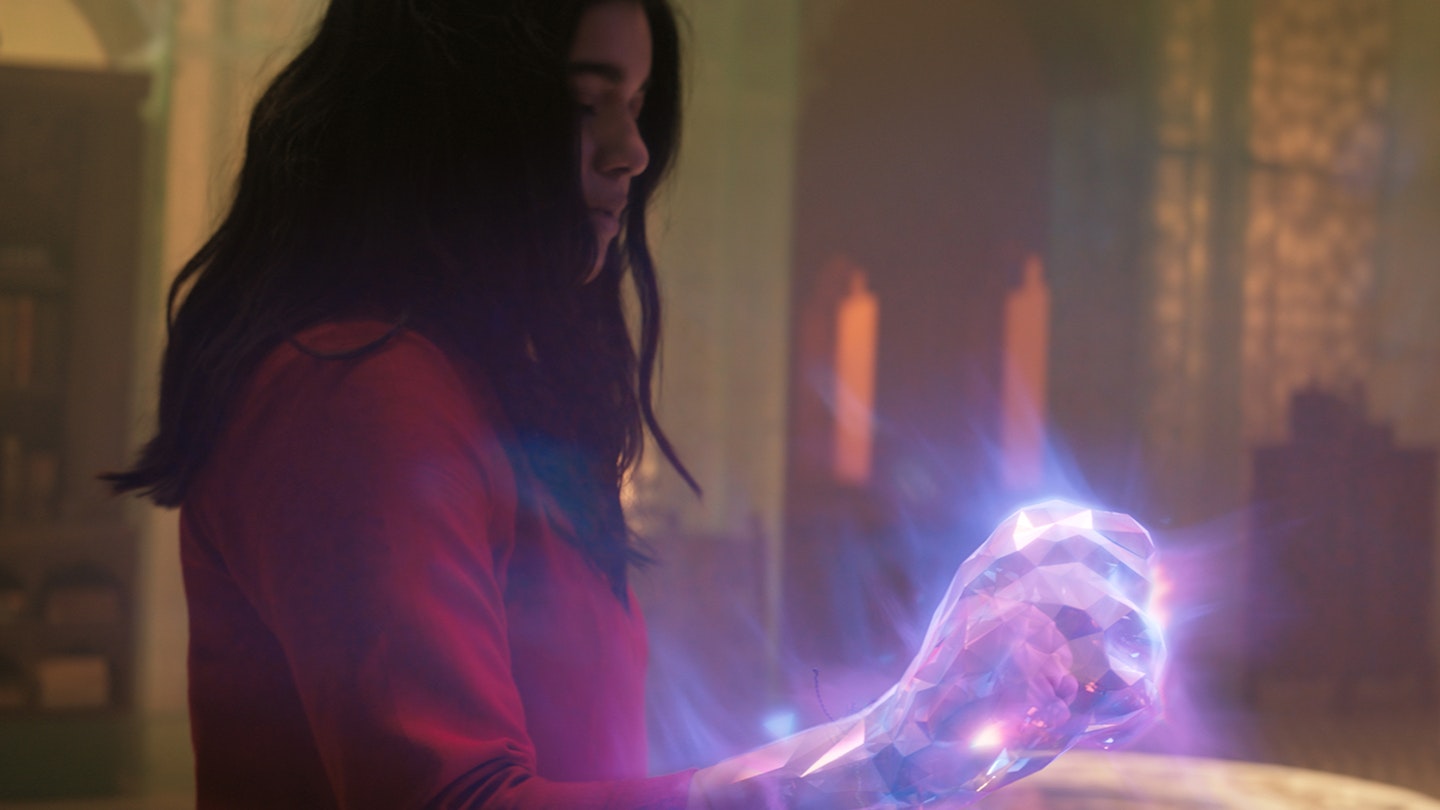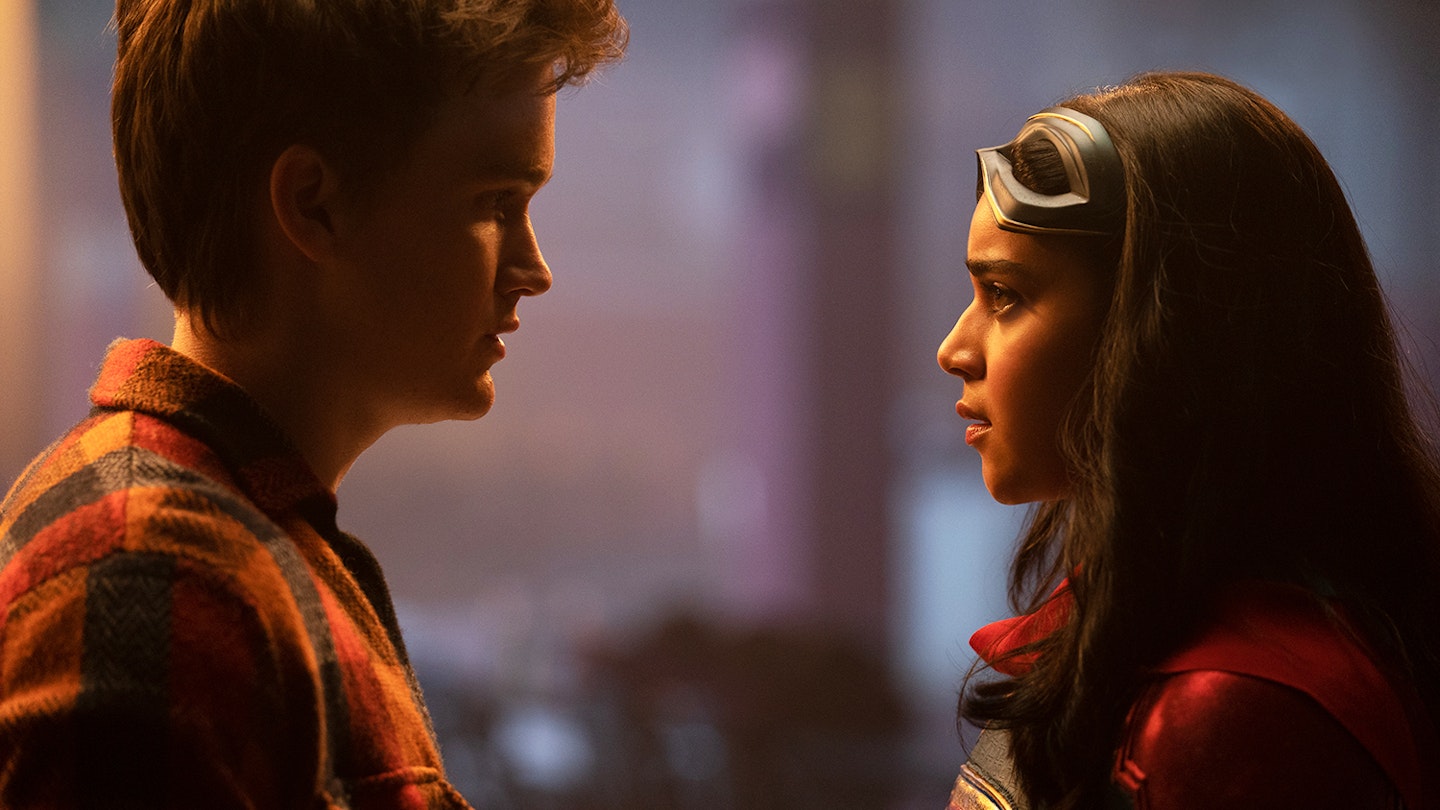If you’re a Marvel Cinematic Universe fan and you haven’t caught the final episode of Ms. Marvel yet, you’ll want to stop whatever you’re doing right now, log off the internet, and go and watch the concluding chapter of Kamala Khan’s debut season. Because, as those who’ve already seen it – or, very likely had it spoiled for them online – will know, its final scenes contain the use of a word that is going to be hugely significant for the MCU’s future. It’s a word that carries significant meaning in this world, and something fans have long, long waited to come into play as part of Marvel Studios’ interconnected set of characters and stories. In fact, it’s such a big deal that we’re not going to write it until the next paragraph – this is your last SPOILER WARNING. Beware ye, all who enter here…

Still here? Then we can finally say it: they dropped the M-word. No, not ‘Marvel’. Not ‘Ms’. The other M-word: mutation. As Matt Lintz’s Bruno points out to Iman Vellani’s Kamala, he’s noticed something strange when looking into her genetic make-up, something that explains why she has powers when the other members of her family don’t; some kind of mutation in her DNA. And that signifies one thing: mutants (and, therefore, the X-Men) are on the MCU’s horizon at last. For Marvel devotees – and comic book fans especially – it was a major surprise since, on the page, Kamala Khan’s powers originate from her being an Inhuman. But, as the character’s co-creator and series’ executive producer Sana Amanat tells Empire in an upcoming major spoiler interview, it wasn’t always going to be that way.
“We've been talking about it for some time,” Amanat states of connecting Kamala’s story to the mythology of mutants. “Here's a really important thing that people do not know – when we were thinking about the character of Kamala back, back, back in the day in 2012, 2013, when [G.] Willow [Wilson, comic book writer] and myself were ideating, we originally wanted to make her a mutant. That was the whole intention, to be able to do that.” In the series, they were able to get back to that initial idea. “Is she a mutant, question mark?” asks Amanat self-reflexively, tip-toeing around the reveal with the Marvel police potentially listening in. “I don't know. I don't know, guys! All I know is that we use the word 'mutation', and that's all I can say.” Whatever it means for Kamala’s own story, it is a hint of bigger things to come in the MCU. “I will say, I think this is opening up doors for a lot of great storytelling, obviously, as a huge fan, um... of the word 'mutation’,” she laughs. “I’m really happy about it.”
As for Kamala herself, the word ‘mutation’ means little to her on a personal level. When Bruno delivers that information, she quickly shrugs it off as another label that she doesn’t need. “The bigger story really is the origin of Kamala, and everyone has been just trying to pin down what she is. We leaned into that – it's like, we're not going to give you that answer, because when you're telling a story about identity, everyone is so obsessed with labelling people and putting them in a box,” Amanat explains. “I think that's the journey of this entire season – she's been looking for that box, even though she doesn't need it.” For audiences, though, the impact of that word will be seismic. Get ready: the MCU is about to begin its own mutation.
Empire’s full Ms. Marvel spoiler interview with Sana Amanat will be available on an upcoming episode of the Empire Spoiler Special Podcast – stay tuned to your pod feeds. Ms. Marvel is streaming now in full on Disney+.
